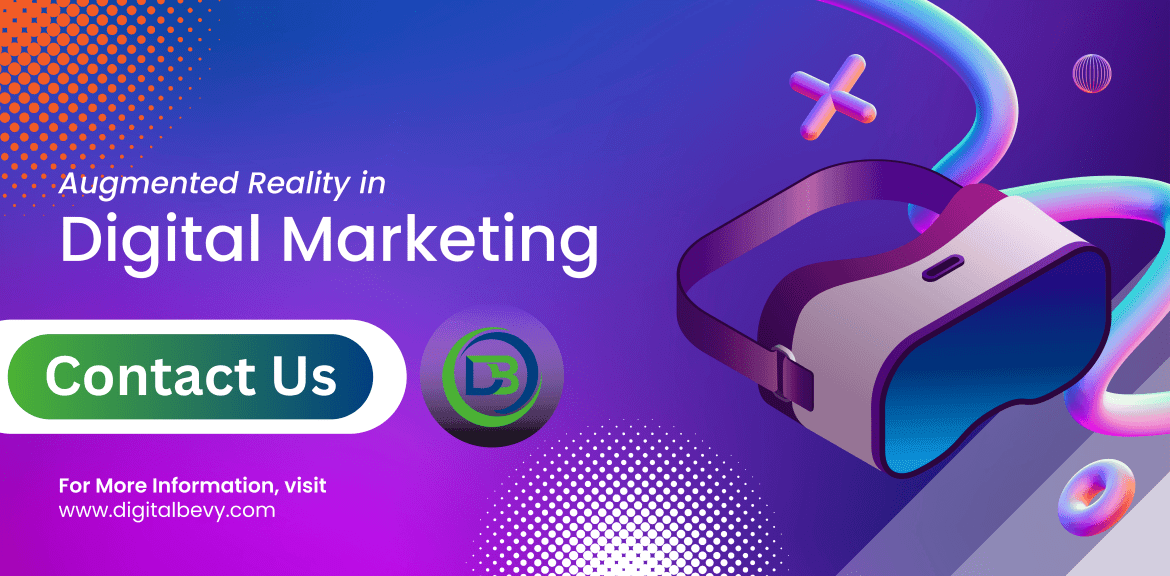AR in Digital Marketing
Augmented Reality (AR) is no longer a term confined to the glossaries of tech enthusiasts or video game developers. It has rapidly metamorphosed into a strategic tool redefining the contours of digital marketing. As Digital Bevy often echoes, “To ignore AR’s potential in marketing is to overlook an opportunity of direct, immersive engagement with the audience.”
Introduction
Augmented Reality offers a tantalizing mix of the real and virtual worlds, providing users with an enhanced version of reality wherein digital information overlays the physical environment. With advancements in AR technology and the ubiquitous nature of smartphones, brands now possess a potent tool to revolutionize their customer experiences.
Evolution of AR in Marketing
Digital Bevy believes that understanding the past illuminates the future. Recall the global phenomenon of Pokémon Go – it didn’t just capture virtual monsters; it captured our imaginations. This game spotlighted AR’s potential, turning it from a novel concept into a commercial tool almost overnight. Today, the scope of AR in marketing stretches far beyond gaming, enhancing myriad sectors from retail to real estate.
How Brands are Leveraging AR
The potential of AR in marketing is colossal, and early adopters are already reaping the benefits.
Virtual Try-Ons: Fashion and cosmetics brands have embraced AR to offer virtual try-ons, allowing consumers to visualize how a product might look on them without being physically present. L’Oréal, for instance, lets users test makeup products virtually, reducing the decision-making time and enhancing user experience.
Interactive Catalogs: Furniture giants like IKEA offer AR apps allowing users to visualize how a piece of furniture would fit and look in their space, bridging the gap between imagination and reality.
AR-Enhanced Events: Product launches and live events are incorporating AR to offer enriched user experiences, elevating brand engagement levels.
Digital Bevy opines, “The integration of AR in marketing strategies isn’t just about adopting technology; it’s about enhancing consumer journeys.”
Benefits of AR in Digital Marketing
1. Improved Engagement: AR provides interactive experiences, ensuring prolonged user engagement compared to traditional media.
2. Informed Decisions: With AR, consumers can visualize products in their environment, leading to better-informed purchase decisions.
3. Bridging Gaps: AR seamlessly connects online and offline experiences.
4. Personalization: Brands can offer tailored experiences, boosting loyalty and customer retention.
Challenges and Considerations
While AR promises immense potential, it comes with its set of challenges. Digital Bevy, with its forward-thinking vision, highlights a few considerations:
Tech Limitations: Not every consumer device is AR-ready, and businesses need to account for compatibility issues.
Valuable Experiences: It’s crucial to ensure AR doesn’t become just a marketing “gimmick” but adds genuine value to the consumer journey.
Privacy Concerns: AR apps can access vast amounts of user data. Brands must prioritize user privacy and data security.
AR Tools for Marketers
With AR’s rising significance, several tools and platforms have emerged. Tools like ARKit, ARCore, and Spark AR are empowering businesses, big and small, to integrate AR into their marketing arsenal. Digital Bevy stresses, “It’s not about having AR but about how you utilize it. The right tool combined with the right strategy is the key.”
The Future of AR in Digital Marketing
Digital Bevy firmly believes that AR is not just a transient trend but a staple for the future of digital marketing. With the convergence of AI and IoT with AR, the marketing realm will see unparalleled user experiences, personalized user journeys, and more profound brand engagements.
Conclusion
The blend of digital and physical realms through AR presents an untapped ocean of opportunities. As we often state at Digital Bevy, “Innovation is the cornerstone of progress in digital marketing.” Augmented Reality stands as a testament to this belief, offering brands a chance to rewrite their marketing narratives, creating immersive, engaging, and memorable experiences.




